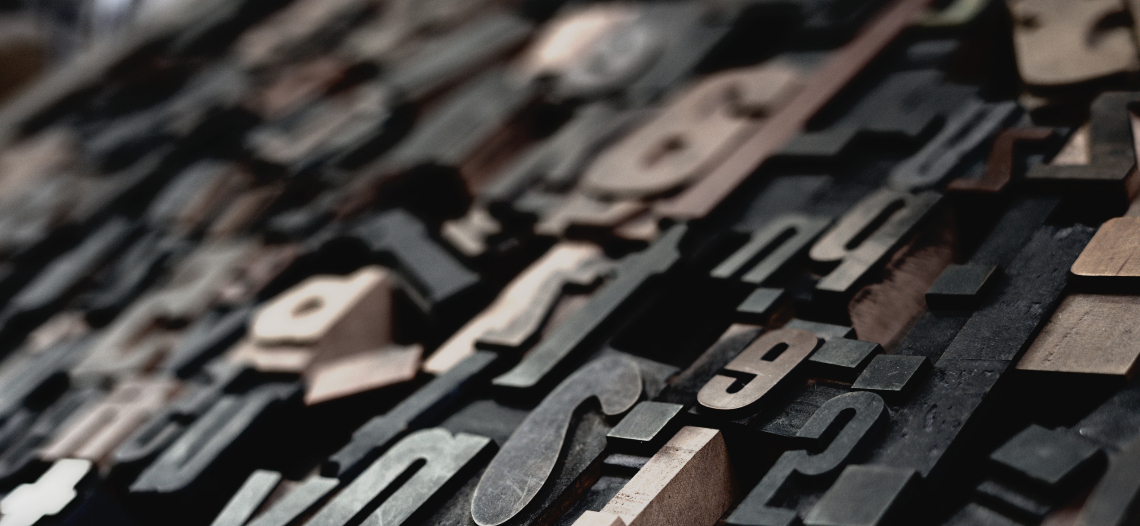Idioms are used to express an idea in a more graphic, creative, funny and effective way. These expressions help you sound more like a native speaker because they make your speech richer, more colloquial and definitely less monotonous. Non-native speakers tend to replace idioms by non-idiomatic equivalents when they do not feel confident with the language. In fact, in order to get confidence when talking a second language, it is crucial to learn to handle the connotative meaning of words. Besides, we must remember that idioms cannot be literally translated because they would not make any sense. Colloquial expressions belong to metaphorical language and help us achieve a more concise communication. In this article, we have compiled 20 essential French expressions used in everyday life that will allow you to broaden your knowledge about French culture and master the connotative power of words.
Do you want to sound super French but you don’t know how? Seize the day and start practicing these expressions right away!
If you wish to take the tests DELF, DALF or TCF, revising all our french vocabuary worksheets is always a great idea! So read on and start learning French online!

#1 Having no idea about the subject or “Poser une colle”
Use this expression when someone asks you a question whose answer you totally ignore. Read the following dialogue:
| Mother: Let’s buy a birthday present for your cousin Ava here in Fnac. Do you know if she likes K-Pop? | Mère: Achetons le cadeau d’anniversaire pour ta cousine Ava à la Fnac. Tu sais si elle aime la K-Pop? |
| Daughter: Well, I have no idea! We should ask her sister. I’ll call her right away. | Fille: Alors, là, tu me poses une colle. Il faudrait demander à sa sœur. Je l’appelle tout de suite. |
In the example above, a mother asks her daughter whether she knows if her cousin likes listening to K-Pop, but her daughter does not have a clue about it. For this reason, she uses the expression: “Poser une colle”. In French, you can also say: “Aucune idée!” or simply: “Je ne sais pas”.
#2 Stood someone up or “Poser un lapin”
You can use this expression when someone stands you up. Read the dialogue below.
| Albert: Did you sell your old sofa? | Albert: As-tu vendu ton vieux canapé? |
| Joe: No, I didn’t. The client stood me up. I waited for him the whole afternoon and he didn’t show up. | Joe: Non. Le client m'a posé un lapin. Je l’ai attendu tout l'après-midi et il n’est pas venu. |
Joe’s client didn’t show up, so he didn’t sell his sofa. We use the expression “Poser un lapin” when someone has an appointment with us and fails to come without even letting us know.
#3 Who cares? “S’en ficher / On s’en fiche”
You can use these expressions among friends. Nowadays, they are not considered as vulgar expressions, but they are quite straightforward and informal. They both mean: “Cela m’indiffère; Cela m’est égal” and they can both be translated as: “Who cares?”. However, “S’en foutre” is much more familiar; it can be closer to: “I don’t give a damn.” So, it doesn’t sound very polite. To be on the safe side, avoid them with someone you have just met, with elders and with your boss.
| Mélodie: My costume is a little bit old, the cape is torn. Should I buy another one? | Mélodie: Mon déguisement est un peu vieux, la cape est toute déchirée. Est-que je m'en achète une autre? |
| Stephan: No, it’s not necessary. Who cares? Nobody will notice it at the party! | Stephan: Non; ce n’est pas nécessaire. On s’en fout! Personne ne va le voir à la fête! |
#4 Understanding: “Allez-hop!”
This expression is equivalent to: “Hurry up” or “Chop-chop.” Use it when you want the other person to do things faster so that you can leave to your destination.
| Father (to his adolescent daughter): The doctor’s appointment is at 11:30 and you are still putting on your makeup! Chop-chop! Let’s go now, otherwise We’ll be late! | Père (en s’adressant à sa fille adolescente): Le rendez-vous chez le docteur est à 11:30 et tu es encore en train de te maquiller! Allez, hop! On y va, autrement nous allons être en retard. |
#5 Going on an adventure: “C’est parti, mon kiki!”
Use this expression to announce the beginning of something like a trip or an adventure. In informal language, the word “kiki” means “fowl.” It is similar to: “vas-y mon poussin.” (poussin=chick, young chicken).
| In a car, a group of friends is ready to leave on vacation. | Dans une voiture, un groupe d’amis se prépare pour partir en vacances. |
| The one who’s going to drive says to the rest of the group: Everybody is ready? | Celui qui va conduire demande aux autres: Est-ce que tout le monde est prêt? |
| The group answers: Yes! Sure! | Le groupe répond: Oui, bien sûr! |
| Driver: OK. Here we go! | Conducteur: OK. C’est parti, mon kiki! |
#6 Agreement in french: “Ça roule!”
Use this expression to show agreement. It is the equivalent to: “OK. That works“.
| Friend A: I’ll wait for you in front of the school at 5:00. | Ami A: Je t’attends devant le lycée à 17:00. |
| Friend B: OK. That works. | Ami B: ça roule! |
#7 Idiom for indiscreet questions in french: “C’est pas tes oignons!”
Use this informal expression when someone asks you an indiscreet question.
| Rosa: So, you and Adrian are going out together? | Rosa: Alors, Adrian et toi, vous sortez ensemble? |
| Patricia: Hey, mind your own business! | Patricia: C’est pas tes oignons! |
#8 How and when to use “Tomber dans les pommes”
This expression means “To faint.” Read the example and see how it is commonly used.
| She’s afraid of blood, so when she saw the cut on his finger, she fainted. | Elle a peur du sang, donc, quand elle a vu la coupure sur son doigt, elle est tombée dans les pommes. |
#9 Issues and problems: “Un cadeau empoisonné”
Use this expression when you want to refer to a gift, an award or an assignment which seems very good, but which soon will prove to become a source of problems and complications or a disadvantage. Think of “Poisoned chalice” in English.
| This new job is driving me crazy. I knew that accepting to replace my boss would be a poisoned chalice. | Ce nouveau poste est en train de me rendre folle. Je savais qu’accepter de remplacer mon patron serait un cadeau empoisonné |
#10 Vocabulary and love: un “Coup de foudre” en français
Use this expression to talk about love at first sight. It describes the sensation of feeling like hit by a lightning bolt when you see someone you really like.
For example:
| Interviewer: How would you describe the first time you saw Alanis? | Interviewer: Comment décririez-vous la première fois que vous avez vu Alanis? |
| Celebrity: It was love at first sight! | Célébrité: Ce fut un coup de foudre! je suis tombé amoureux tout de suite. |
#11 French expression related to expense: “Coûter un bras”
Use this expression when you think something is too expensive. In English, there is a similar expression: “It costs an arm and a leg,” and similarly, it means that something costs a fortune.
| Plane tickets to China cost an arm and a leg, that’s why he hasn’t visited his brother yet. | Le billet d’avion pour partir en Chine coûte un bras, voilà pourquoi il n’est pas encore allé rendre visite à son frère. |
#12 French vocabulary: “Froid de canard”
You can use this expression when it’s bitterly cold. It seems that this colloquial phrase comes from duck hunting, which is practised in autumn and in winter. The hunter must remain motionless while it’s freezing in order to wait for its poor victim, which will end up in a sophisticated recipe.
| The temperature is below seven degrees. It’s freezing cold! | Il fait moins de 7 degrés. Il fait un froid de canard! |
#13 Expressing happiness in french: “Etre aux anges”
This expression is used when someone feels extremely happy. It has a religious connotation since paradise and angels are associated with a state of pleasure and satisfaction.
| When Fred knew his son had won the match, he was on cloud nine! | Quand Fred a su que son fils avait gagné le match, il était aux anges! |
#14 Common french expression: “Vivre sur son nuage”
Use this expression to refer to someone who is very distracted, he or she seems to live in another reality, far away in his or her own world.
| Alice left home and forgot to close all the windows. She’s so distracted! | Alice est partie et elle a oublié de fermer toutes les fenêtres. Elle vit sur un petit nuage! |
#15 Similarity in french/english expressions: “Appeler un chat un chat”
This expression invites us to say the truth about something even if it is not politically correct, pleasant or polite. In English there is a similar expression which is: “To call a spade a spade” and also: “To call a spade a spade and not a gardening tool.”
| Friend A: Her husband doesn’t want her to finish her career or work. He’s too narrow-minded! | Amie A: Son mari ne veut pas qu’elle finisse ses études ni qu’elle travaille. Il est trop étroit d’esprit. |
| Friend B: Let’s call a spade a spade, he is a male chauvinist. | Amie B: Appelons un chat un chat,c’est un machiste / un macho. |
#16 Giving opinions and expressing feelings: “C’est n’importe quoi”
This expression can be loaded with exasperation. You can use it when you strongly disagree with someone and you think his or her opinion is irrelevant, false or wrong.
| The minister said that from now on girls will have to wear long skirts and pants to go to school. That is nonsense! | Le ministre a dit que dorénavant les filles devront porter une jupe longue et des pantalons pour aller à l’école. C’est n’importe quoi! |
#17 French expression: “C’est la galère!”
Use this expression when you want to complain about an annoying situation. Its origin goes back to the 18 century. “Galères” (Galleys) were boats where convicted criminals served their sentences. Hungry, tied and tortured, they were forced to paddle. Galleys were abolished in 1748 but they remain a symbol of hardship.
| Taking the tram at the end of the day is a nightmare! | Prendre le tram à la fin de la journée, c'est la galère! |
#18 French slang: “Un truc de ouf”
“Truc” means “thingy.” It is the word used when you have forgotten the name of an object or when you don’t know what the name is. “Ouf” is an example of verlan, which is a special form of French slang. Verlan consists of mixing the letters of a word in order to create a new word whose meaning is similar to the original one. If we rearrange the letters of “ouf,” the word we obtain is: “fou” (crazy). So, “un truc de ouf” is an expression used to describe something exceptional in a positive way or something unbelievable and crazy, in a negative way.
| Camille’s concert was absolutely awesome! I loved it! | Le concert de Camille a été un truc de ouf! J’ai adoré! |
| I spent 2 hours stuck in a traffic jam to get home. It was crazy! | J’ai passé 2 heures coincée dans un embouteillage pour rentrer à la maison. C’était un truc de ouf ! |
#19 French vocabulary for not giving up: “Laisser tomber”
Use this expression when you want to say: “forget it” or “let it go.” Read the following dialogue:
| Jean: Can you send me the picture of the cathedral you took? | Jean: Est-ce que tu peux m’envoyer la photo de la cathédrale que tu as prise? |
| Chris: I’m going to look for it because I took more than 200 pictures. | Chris: Je vais la chercher car j’ai fait plus de 200 photos. |
| Jean: Forget it! there is no rush. | Jean: Laisse tomber; c’est pas urgent. |
#20 Literature and idioms: “Revenons à nos moutons”
The origin of this expression goes back to 1464 and it is derived from a French literature classic: “La farce de Maître Pathelin”, a comedy written by Rabelais. You can use this expression after a digression. It means: “let’s get back on track” or “let’s get back to the topic in hand.”
| Sorry, I ended up talking about my own adolescence. Let’s get back to the topic in hand. | Excusez-moi, j’ai fini par parler de ma propre adolescence. Revenons à nos moutons! |
Continue Improving Your French With Globalexam!
GlobalExam is a well-known training platform for language certificates. We are dedicated to online preparation for all these prestigious language tests. We are convinced that to be certified, you need to work on the four skills (oral, written, reading and writing) and prepare seriously and specifically for the exam.
Trust our experience and start learning French, go for that dream trip to France and master the language of philosophy and literature!
Take some times to read more articles we have written for you to enrich your French vocabulary and improve your language level.
Here with the list of vocabulary worksheets on many kinds of topics:
- The Main technology And Innovations Vocabulary In French
- Nationalities In French: Vocabulary of Countries And Inhabitants
- How To Write Cover Letters And Emails In French? Examples
- Names for Animals / Farm Animals: French vocabulary list
- Numbers in French: Learn How To Count Properly Up To 100
- Physical Description In French: Describe Physical Appearances
- Cities and Countryside In French: List of names and places
- The Top 100 French Food Vocabulary Words And Phrases
- Body Parts In French: Vocabulary Worksheet And Examples
- Money In French: Essentiels and Practicals Vocabulary List
- History And Literature In French: Useful Vocabulary And Terms
- Work And Projects In French: Vocabulary List And Examples
- How To Ask The Time In French? Learn How To Tell And Write Time
- Talking About The Weather In French: Vocabulary And Terms
- Clothing In French: Learn The Vocabulary To Become A Fashionista
- Activities: French vocabulary for sports and daily culural hobbies
- Family Members In French: Learn Your Family Tree Vocabulary
- Music In French: Styles, Instruments and Musical Notes
- Learn Most Common French Vocabulary: Worksheets And Examples



